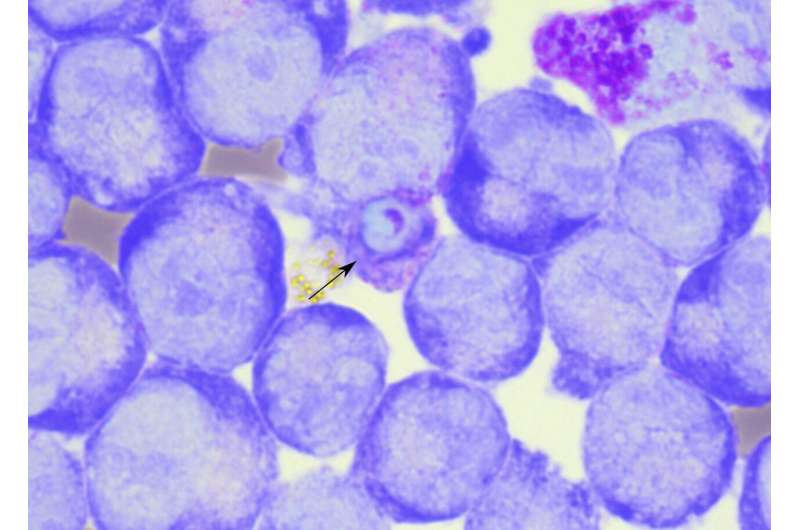This article has been reviewed according to Science X's editorial process and policies. Editors have highlighted the following attributes while ensuring the content's credibility:
fact-checked
peer-reviewed publication
trusted source
proofread
Plasmodium vivax malaria: Infections may be largely underestimated in sub-Saharan Africa

An international research team has revealed how Plasmodium vivax, one of the main causes of malaria, is capable of infecting people in Africa. This is an important discovery, given that until now these populations were considered to be naturally protected due to the absence of the Duffy protein on the surface of their red blood cells.
These results suggest that a large number of individuals in sub-Saharan Africa could be silent carriers of Plasmodium vivax and, consequently, that malaria could be largely underestimated in Africa. The results of this research have been published in Cell Host & Microbe.
Malaria kills almost 600,000 people worldwide every year, mainly in sub-Saharan Africa. For some time, epidemiological data suggested that Plasmodium vivax, the second most common Plasmodium species after Plasmodium falciparum, could only infect young red blood cells (called reticulocytes) that have the Duffy protein (or DARC for Duffy Antigen Receptor for Chemokines) on their surface. This explains why Duffy-negative populations are naturally protected against infection by Plasmodium vivax, and the low P. vivax burden in sub-Saharan Africa, where populations are exclusively or overwhelmingly Duffy-negative.
However, since the 2000s and with the advent of new molecular diagnostic methods, many studies have revealed the ability of Plasmodium vivax to infect Duffy-negative subjects. This left one question unanswered: how does the parasite enter young red blood cells in the absence of the Duffy protein?
To answer this question, Didier Ménard's team, in collaboration with scientists from King's College London, UK, the Institut Pasteur, the Institut Pasteur de Madagascar and Addis Ababa University, examined the red blood cell maturation process in vitro.
The scientists discovered that Duffy-negative red blood cell precursor cells temporarily express the Duffy protein during their development. However, our work found that only a small proportion of the precursor cells that normally express the Duffy protein (1–3%) are likely to be infected by Plasmodium vivax.
This study, therefore, confirms that, whatever the host status (Duffy positive or negative), Plasmodium vivax is capable of replicating outside the bloodstream, in sites where red cells are produced in the bone marrow and spleen
This new discovery raises new research questions. Are large numbers of Duffy-negative individuals in sub-Saharan Africa infected with Plasmodium vivax in their bone marrows and spleens in the absence of detectable blood stage infections, using traditional malaria diagnostic methods (thin/thick smear and rapid diagnostic test)?
"This work suggests a little-known facet of Plasmodium vivax infection and an underestimation of the importance of this parasite in sub-Saharan Africa," says Didier Ménard, the study's senior author. "As a result, we need to rethink our strategies for combating this parasite," he adds.
More information: Isabelle Bouyssou et al, Unveiling P. vivax invasion pathways in Duffy-negative individuals, Cell Host & Microbe (2023). DOI: 10.1016/j.chom.2023.11.007




















